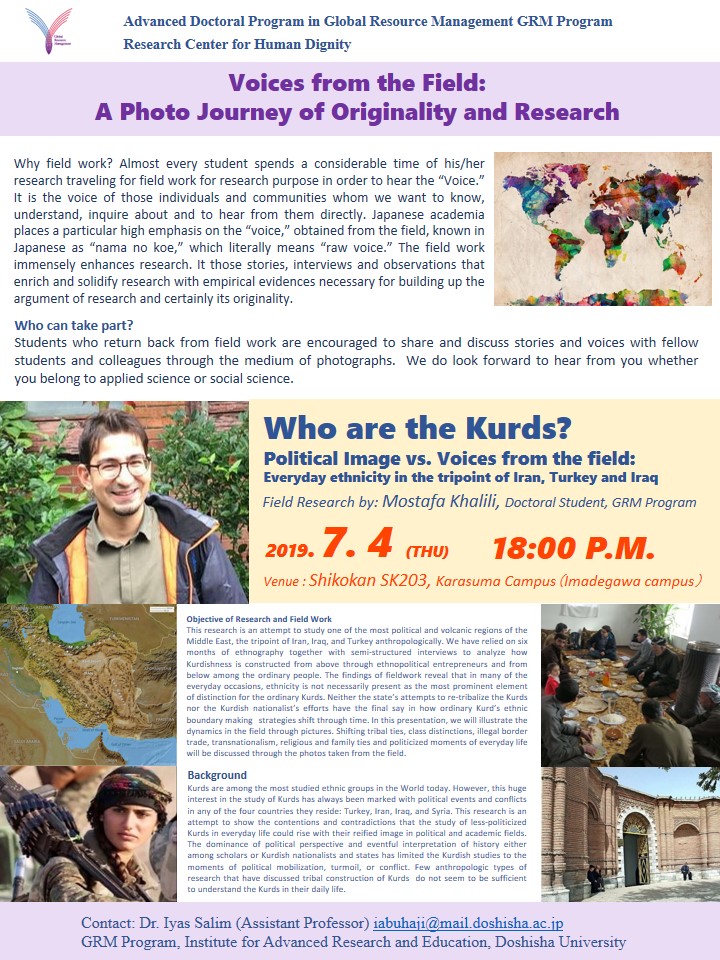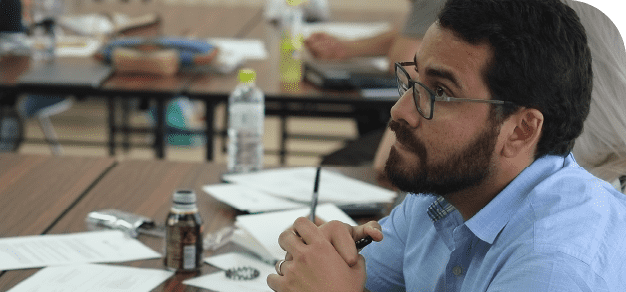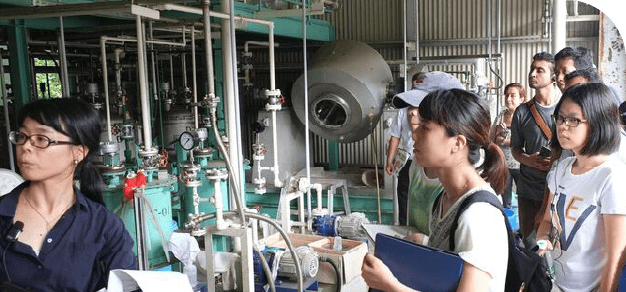News & Event
ニュース・イベント
Voices from the Field: A Photo Journey of Originality and Research
2019/07/02
Why field work? Almost every student spends a considerable time of his/her research traveling for field work for research purpose in order to hear the “Voice.” It is the voice of those individuals and communities whom we want to know, understand, inquire about and to hear from them directly. Japanese academia places a particular high emphasis on the “voice,” obtained from the field, known in Japanese as “nama no koe,” which literally means “raw voice.” The field work immensely enhances research. It those stories, interviews and observations that enrich and solidify research with empirical evidences necessary for building up the argument of research and certainly its originality.
Who can take part?
Students who return back from field work are encouraged to share and discuss stories and voices with fellow students and colleagues through the medium of photographs. We do look forward to hear from you whether you belong to applied science or social science.
The title of the event this time is;
"Who are the Kurds?
Political Image vs. Voices from the field:
Everyday ethnicity in the tripoint of Iran, Turkey and Iraq" By, Mostafa Khalili, Doctoral Student, GRM Program.
---------------------------------
Date: Thursday, 4 July 2019
Time: 18:00 P.M.-19:30 P.M.
Venue: SK203, Shikokan Building, Karasuma Campus, Doshisha University
*No Reservation Required
You are welcome and free to join the event.
---------------------------------
Background on the research
Kurds are among the most studied ethnic groups in the World today. However, this huge interest in the study of Kurds has always been marked with political events and conflicts in any of the four countries they reside: Turkey, Iran, Iraq, and Syria. This research is an attempt to show the contentions and contradictions that the study of less-politicized Kurds in everyday life could rise with their reified image in political and academic fields. The dominance of political perspective and eventful interpretation of history either among scholars or Kurdish nationalists and states has limited the Kurdish studies to the moments of political mobilization, turmoil, or conflict. Few anthropologic types of research that have discussed tribal construction of Kurds do not seem to be sufficient to understand the Kurds in their daily life.
Objective of Research and Field Work
This research is an attempt to study one of the most political and volcanic regions of the Middle East, the tripoint of Iran, Iraq, and Turkey anthropologically. We have relied on six months of ethnography together with semi-structured interviews to analyze how Kurdishness is constructed from above through ethnopolitical entrepreneurs and from below among the ordinary people. The findings of fieldwork reveal that in many of the everyday occasions, ethnicity is not necessarily present as the most prominent element of distinction for the ordinary Kurds. Neither the state’s attempts to re-tribalize the Kurds nor the Kurdish nationalist’s efforts have the final say in how ordinary Kurd’s ethnic boundary making strategies shift through time.
In this presentation, we will illustrate the dynamics in the field through pictures. Shifting tribal ties, class distinctions, illegal border trade, transnationalism, religious and family ties and politicized moments of everyday life will be discussed through the photos taken from the field.
Please click "Leaflet" below for more information.
Contact: Dr. Iyas Salim (Assistant Professor)
Email : iabuhaji@mail.doshisha.ac.jp
GRM Program, Institute for Advanced Research and Education, Doshisha University



